Ever wonder who invented BBQ sauce? Believe it or not, this popular condiment traces its roots back to the 17th century!
Our post will take you on a flavorful journey through time, exploring how BBQ sauce was created and how it rolled into every kitchen pantry we know and love today.
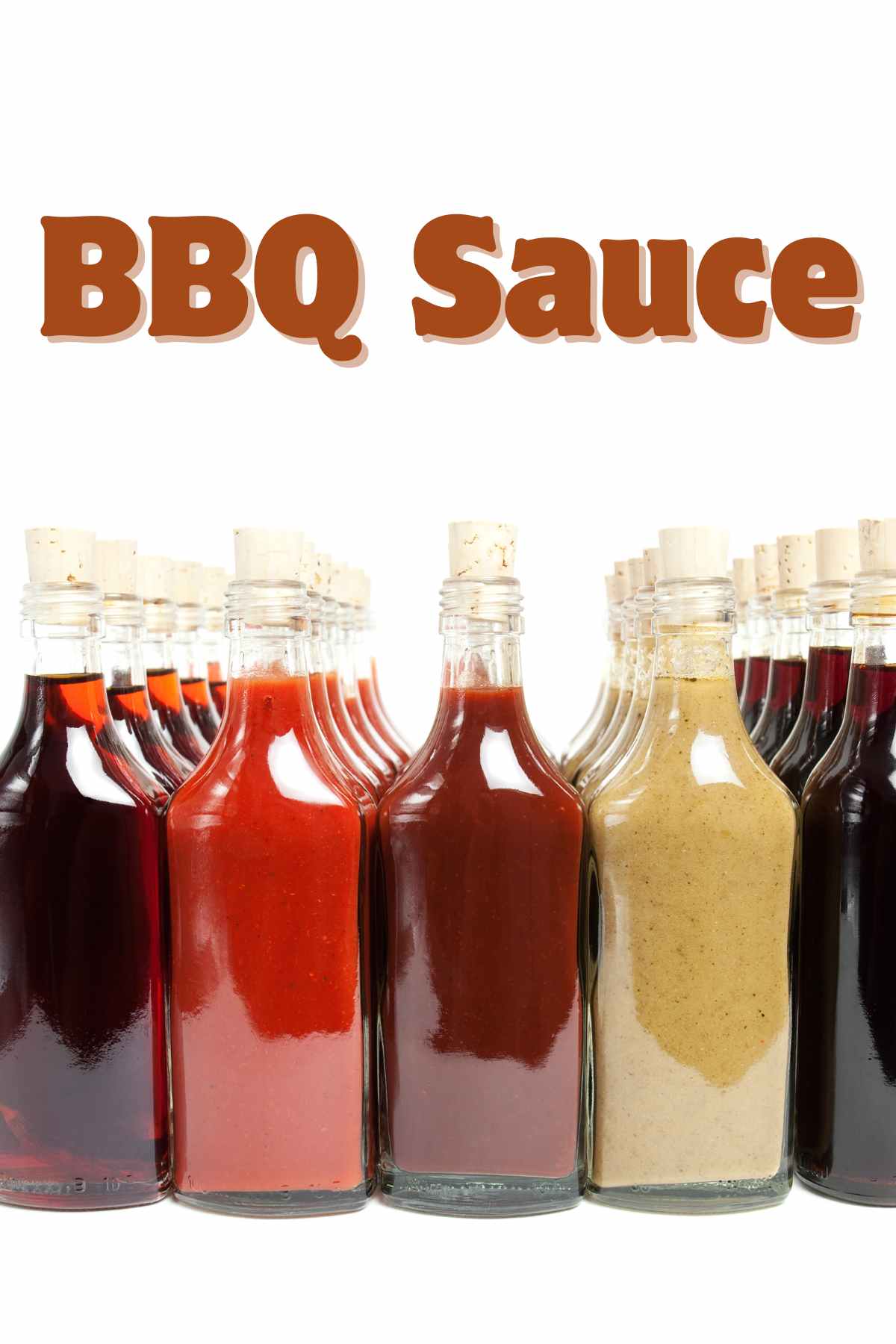
So let’s dive in for an exploration of Barbecue history!
The History of Barbecue Sauce
According to the Tennesee State Museum, it is believed that the first primitive versions of barbecue sauce were invented by a Dominican missionary named Père Labat .
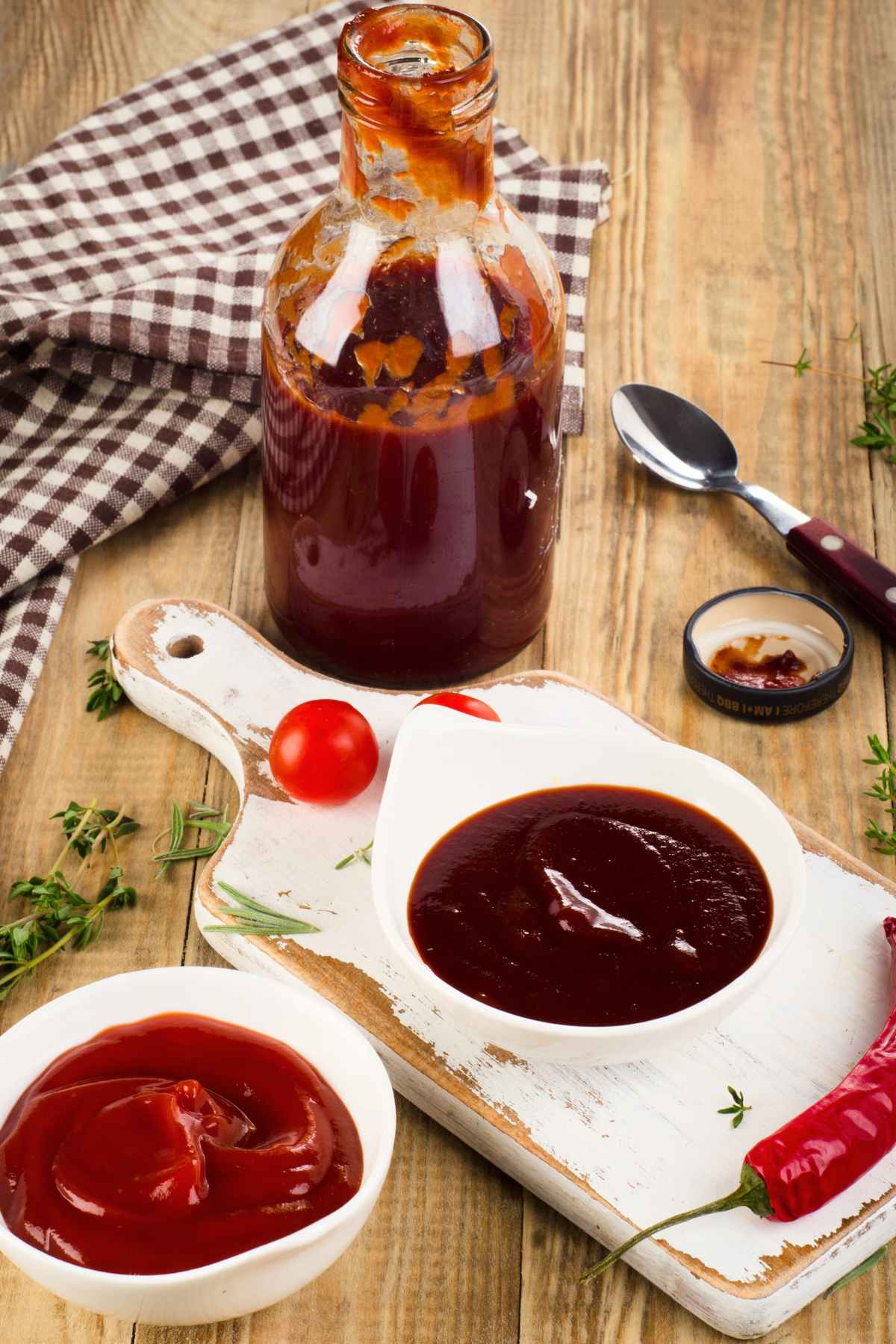
In the past, Dominican cooks used lime juice and pepper to marinate and flavor barbeques. This combination of flavors would have enhanced the taste of the meat and helped to tenderize it during cooking.
In China, barbecue sauce was made using a mixture of vinegar, soy sauce, garlic, and different spices.
The Greeks made BBQ sauce using various herbs, spices, and olive oil.
The Romans used fermented fish sauce as a base and added various herbs, spices, and wine. The Native Americans had their own unique methods of cooking cuts of meat over open fires, and they would often use different natural ingredients to flavor and baste the meat.
Early German settlers in the New World were first introduced to this tangy condiment by their African slaves.
The primitive recipe was simple, employing readily available ingredients like lime juice and pepper. As a popular grilling marinade, it quickly became an indispensable component of outdoor cookouts.
Commercial production of barbecue sauce began in the late 1800s, with the creation of factory-made sauces that could be sold to consumers.
Companies like Heinz and Kraft introduced their versions of bottled BBQ sauce and made selling barbeque easily available to the general public.
Commercialization of barbecue sauce
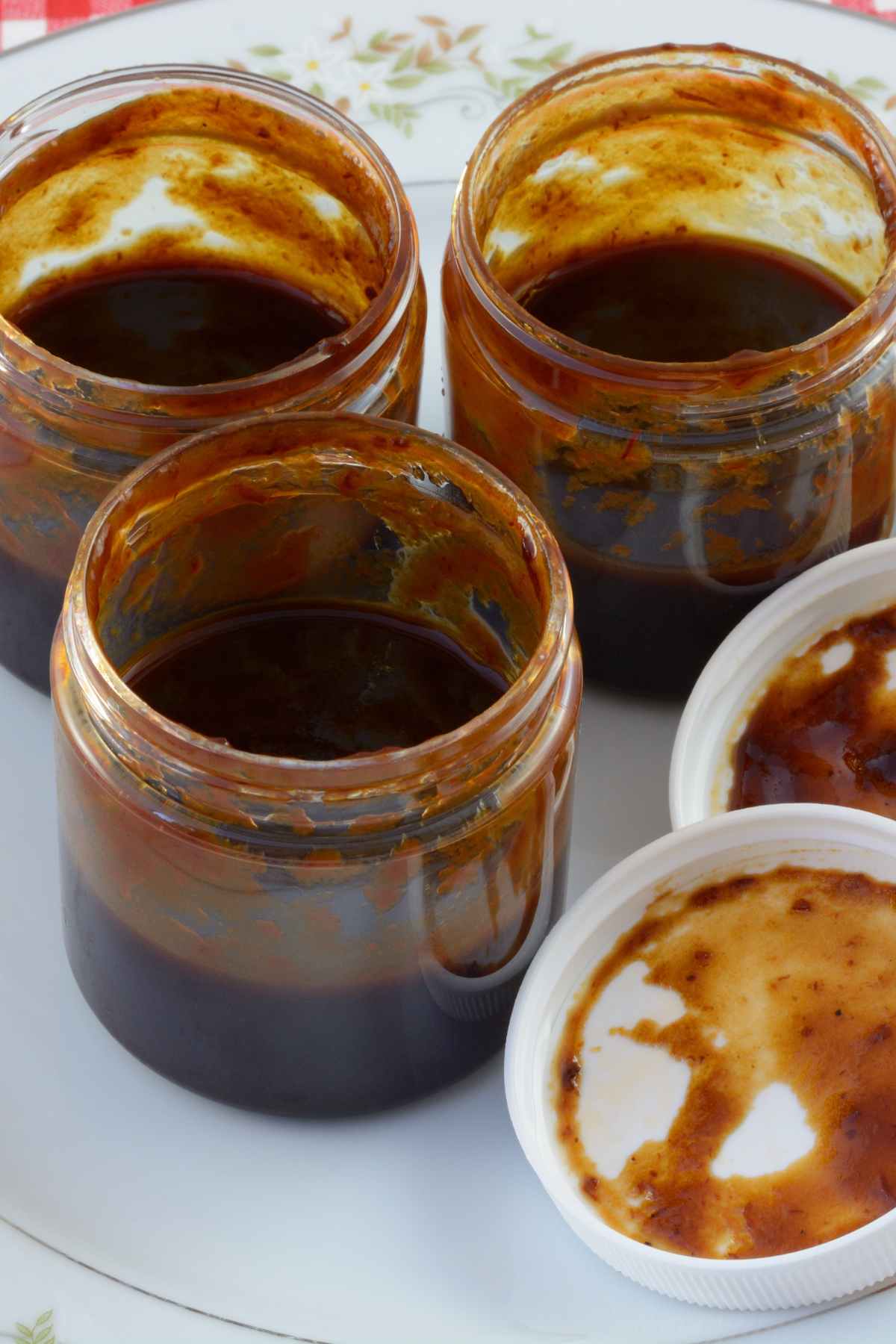
Initially, BBQ sauce was made at home using traditional recipes passed down through generations. It is often a mixture of vinegar, tomato paste, spices, and other flavorings.
Some used lime juice and pepper to flavor meat for the barbeque while others highlighted the use of vinegar along with salt and sweet and sour sauce.
As the popularity of barbecue grew, commercial bottling companies started producing and selling commercially made bottled barbecue sauces.
It was believed that Heinz became the first company to sell these bottled sauces for preparing barbeque foods for barbequing them over indirect heat or fire.
Common Ingredients in Barbecue Sauces
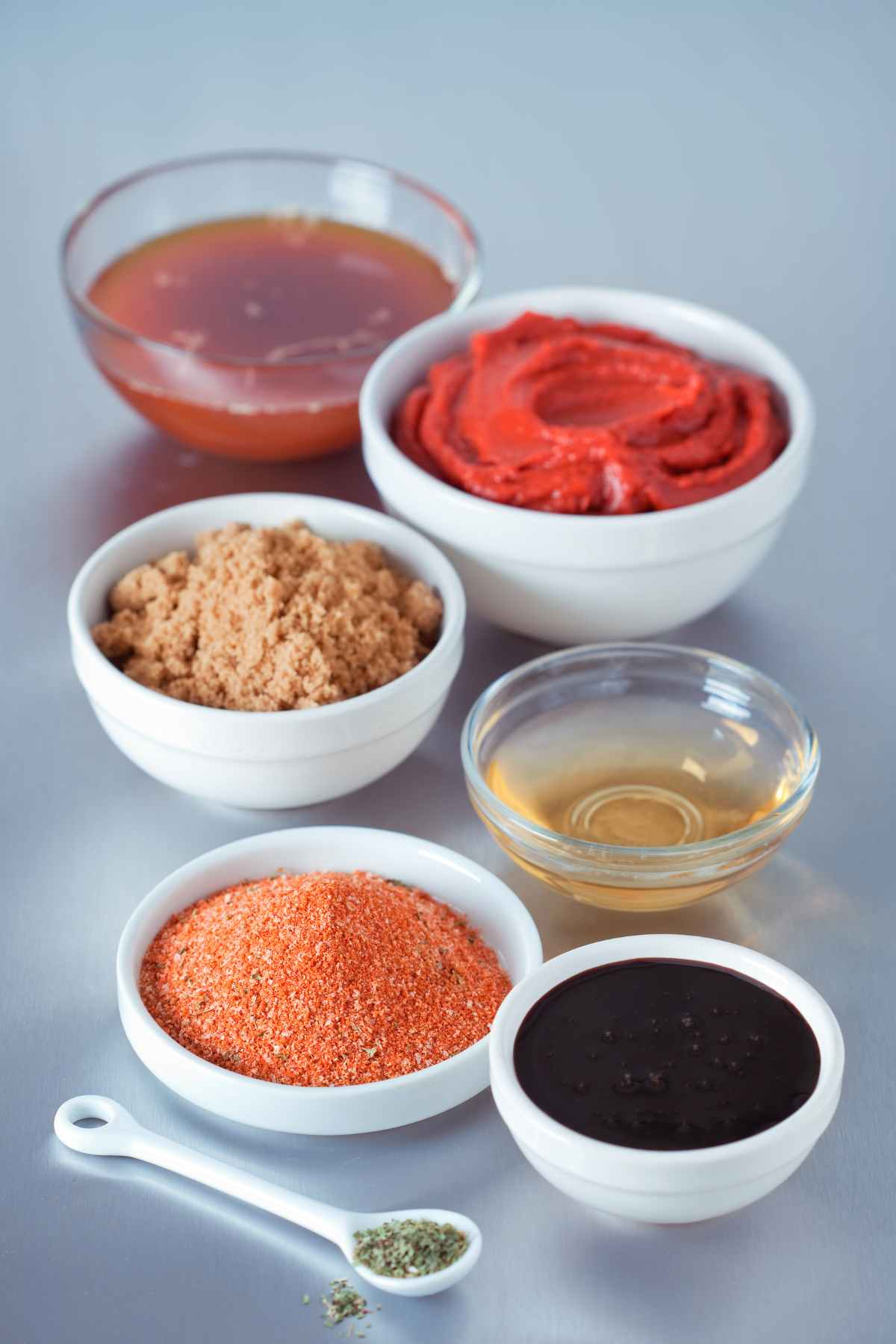
The most common ingredients of barbecue sauces found in several recipe books include tomatoes or tomato paste, vinegar, lemon juice or lemon jest, sugar, or sweeteners like molasses or honey.
Spices such as garlic powder, onion powder, and paprika, as well as Worcestershire sauce for a tangy and savory taste.
Other ingredients like mustard, liquid smoke, and hot sauce may be added for additional flavor and heat.
The Different Types of Barbecue Sauce
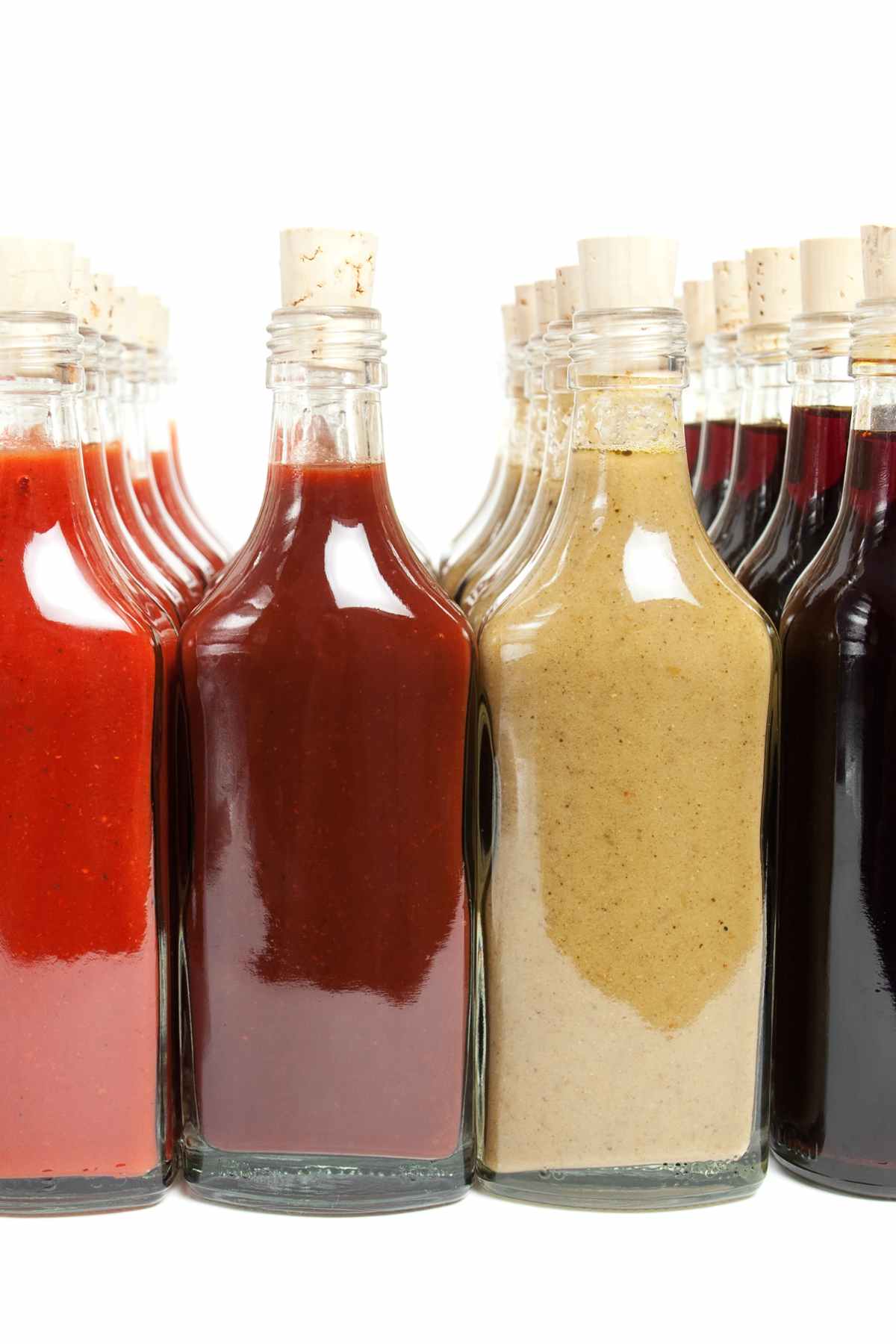
1. Vinegar-based sauces
Vinegar-based sauces are sauces that use vinegar as a primary ingredient and flavoring agent. They are known to have a strong acid taste and tangy flavor.
There are several different types of vinegar-based sauces, including barbecue sauce, hot sauce, salad dressings, pickling brines, and dipping sauces.
Vinegar-based sauces are a popular type of barbecue sauce that adds a tangy and acidic flavor to grilled meats and helps preserve food longer.
2. Tomato-based Sauce
Tomato-based sauces are sauces that are primarily made from tomatoes as the base ingredient combined with spices, vinegar, salt and pepper, sugar, and other flavors.
Some popular tomato-based sauces include marinara sauce, pizza sauce, tomato salsa, and tomato ketchup.
Tomato-based sauces add a delicious tangy and sweet flavor to grilled foods.
3. Mustard-based sauces
Mustard-based sauces are known for their tangy and slightly spicy flavor.
These sauces typically contain mustard as the main ingredient, along with other spices and seasonings such as vinegar, brown sugar and spices, and hot peppers.
Regional variations of barbecue sauce
1. Kansas City-style Barbecue Sauce
Kansas City-style is a famous BBQ sauce, known for its thick, sweet, and tangy flavor. It is typically used as a glaze or dipping sauce for various meats, especially beef and pork.
The history of this sauce can be traced back to the early 1900s in Kansas City, Missouri, which was a major hub for meatpacking and barbecue.
This sauce is a combination of ingredients including tomatoes, molasses, brown sugar, vinegar, Worcestershire sauce, salt to taste, and various spices.
The sauce is often characterized by its rich, smoky flavor, which is achieved through the addition of ingredients such as liquid smoke or smoked paprika.
2. Carolina-style Sauce
Carolina-style sauce has a rich history closely tied to the barbecue tradition in North and East Carolina.
This style of sauce is characterized by its vinegar-based composition, usually apple cider vinegar, with little to no tomato or sugar added.
It’s commonly used as a marinade or a finishing sauce for pork, particularly pulled pork.
3. Texas-style Sauce
Texas-style sauce is a type of barbecue sauce that is popular in Texas and is known for its bold, tangy, and spicy flavors.
It used to be a simple blend of vinegar, salt, black pepper, and maybe some chili powder.
Over time, the recipe evolved to include additional ingredients such as tomato paste, Worcestershire sauce, yellow mustard, brown sugar, and various spices.
4. Memphis Style Sauce
Memphis-style BBQ sauce is a tangy and slightly sweet sauce that originated in the African-American community of Memphis, Tennessee in the Southern United States.
One of the key elements of Memphis-style barbecue is the use of a dry rub, a mixture of spices and herbs that is generously applied to the meat before cooking.
The dry rub forms a flavorful crust on the meat, adding depth and complexity to the final product.
The Memphis-style BBQ sauce is typically served on the side rather than mopped or brushed onto the barbecued meat during cooking.
Famous Modern Barbecue Sause and Commercial Barbecue Sauce Brands and Recipes
1. Heinz Barbecue Sauce
Heinz Barbecue Sauce was first introduced by the H.J. Heinz Company, a well-known American food processing company owned by Henry J. Heinz.
Initially, the sauce was created as a variant of their famous ketchup, but with added flavors and spices, specifically tailored for barbecue lovers.
The recipe of this barbecue sauce has evolved with time, incorporating new ingredients and flavors to keep up with changing consumer demands.
However, the brand has maintained its commitment to producing a sauce that is tangy, smoky, and irresistibly delicious.
2. Kraft Barbecue Sauce
Kraft barbeque sauce was invented in as far as 1950 and it has a long history that all began with the establishment of the Kraft Cheese Company in 1903 by James L. Kraft.
Initially, the company focused on producing and selling processed cheese.
In the 1920s, Kraft expanded its product line to include various condiments and dressings, including mayonnaise, salad dressings, and barbecue sauce.
The company saw an opportunity to capitalize on the increasing popularity of barbecue in the United States.
3. Howard’s Barbecue Sauce
Mrs. Howard’s Barbecue Sauce is a family-owned recipe that has been passed down through generations.
The sauce was originally created by Mrs. Howard’s great-grandfather, who was known for his delicious barbecue dishes.
The BBQ sauce recipe itself is a well-guarded family secret, with only Mrs. Howard and a few trusted family members know the exact ingredients and proportions.
It contains a blend of spices, vinegar, brown sugar, and Worcestershire sauce, among other ingredients.
4. Martha McCollogh-Williams Mop and Sauce
Martha McCollogh-Williams Mop and Sauce is a well-known brand of barbecue sauce that has gained popularity for its tangy and flavorful taste.
This sauce is a favorite among barbecue enthusiasts, as it adds a delicious smoky flavor to grilled foods.
Made with a combination of spices, vinegar, and other secret ingredients, this sauce adds the perfect finishing touch to your barbecued dishes.
5. Chef Wyman’s BBQ Sauce
Chef Wyman’s Barbecue Sauce is a tangy glaze that adds a burst of flavor to any meat.
This smoky sauce has a sweet and savory taste that perfectly complements grilled or smoked dishes. Made with high-quality ingredients like hickory-flavored sauce, it is known for its rich and bold flavors.
6. Pinkey Langley’s BBQ Sauce
Pinkey Langley’s Barbecue Sauce is a delicious and tangy grilling sauce that is loved by barbecue enthusiasts all over.
This famous sauce originated in the Kansas City style of barbecue, known for its thick and rich flavors.
Pinkey Langley’s BBQ Sauce perfectly balances sweetness with smokiness, making it the perfect glaze for all types of meats.
7. James Beard’s Basic BBQ Sauce
James Beard, a renowned American chef and cookbook author, created his own version of Basic Barbecue Sauce.
This tangy glaze combines the flavors of tangy vinegar, spicy mustard, sweet brown sugar, and smoky Worcestershire sauce.
It is perfect for marinating foods before grilling or as a delicious dipping sauce.
8. Mr & Mrs. Alinda Hobbs BBQ Sauce
Mr. & Mrs. Alinda Hobbs Barbecue Sauce is a renowned brand known for its delicious and flavorful barbecue sauce.
Their sauce has been perfected over the years, using a combination of secret ingredients that make it truly unique.
With a tangy glaze and a sweet and savory flavoring, this barbecue sauce is perfect for enhancing the taste of any meat you grill or smoke.
9. Georgia Barbecue Sauce Company
Georgia Barbecue Sauce Company has a range of delicious commercial sauces that are perfect for adding flavor to your favorite grilled dishes.
These sauces come in a variety of flavors and styles, from tangy glazes to hickory-flavored options.
This barbecue sauce company in Atlanta was the first company to commercially sell barbeque sauce in 1909, and it turned out to be a massive success.
10. Alabama White Sauce
Alabama white sauce is a condiment and marinade that is commonly associated with barbecue in the state of Alabama, United States.
It is a creamy and tangy sauce made primarily from mayonnaise, vinegar, and a variety of seasonings such as black pepper, salt, sugar, and garlic powder.
The sauce is often used as a dipping sauce for grilled or smoked poultry, particularly chicken or turkey, but can also be used as a dressing for salads or as a basting sauce during cooking.
Choosing the Right Barbecue Sauce
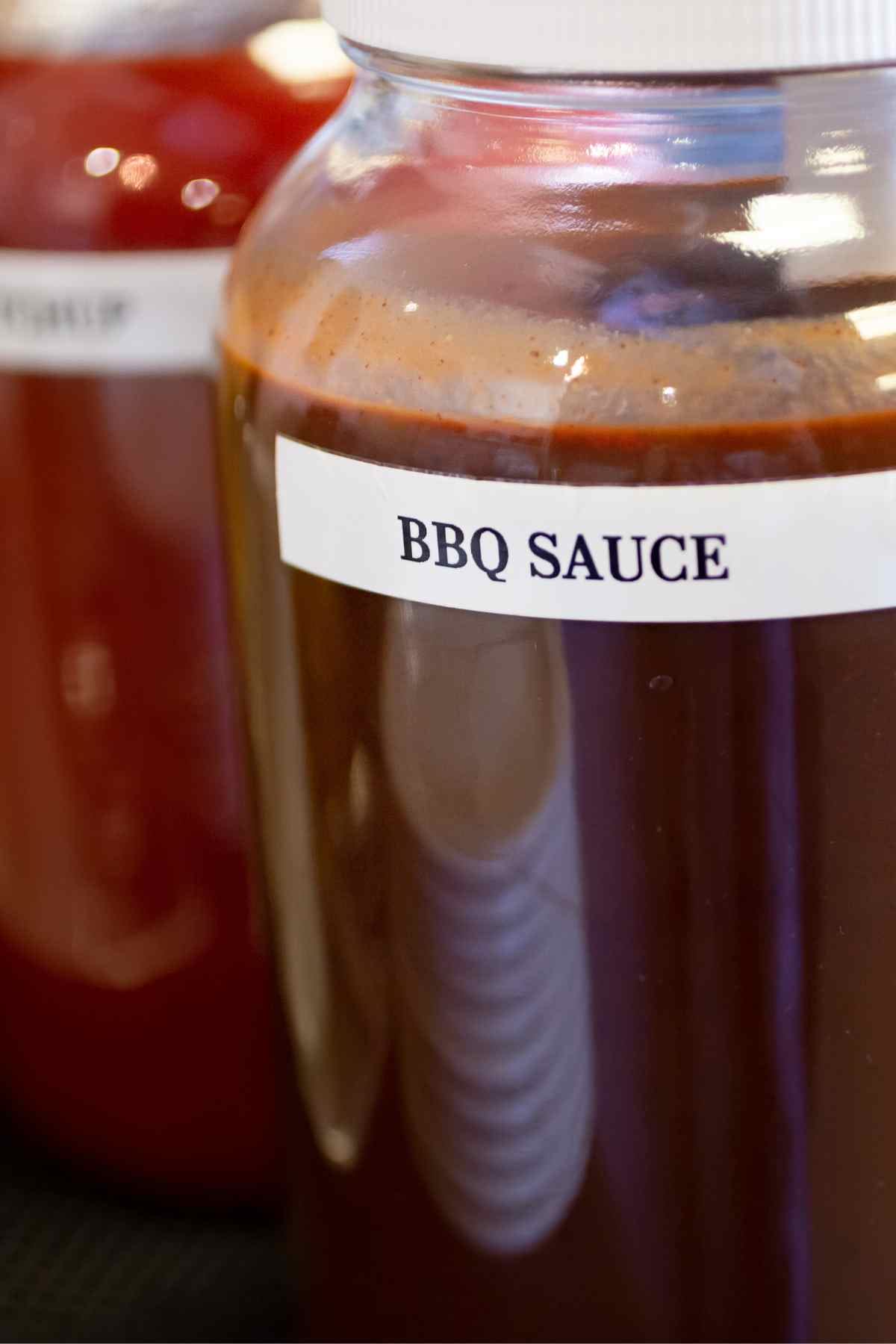
When choosing the right barbecue sauce, it’s important to consider your personal taste preferences and the type of meat or dish you will be using it on.
If you prefer a sweeter sauce, look for one that contains ingredients like brown sugar, molasses, or brown sugar.
If you enjoy a tangy sauce, opt for one with vinegar or mustard as key ingredients.
Additionally, think about the consistency of the sauce – whether you prefer a thick and sticky sauce or a thinner, more marinade-like consistency.
In A Nut Shell
The exact person who invented barbecue sauce is unknown. However, it has been a part of American cuisine since the 17th century.
Over time, different variations and regional styles of barbecue sauce have evolved, making it an essential and flavorful component of grilled and smoked meats.
FAQs
The exact individual who invented BBQ sauce remains unknown, but its development spans various regions and cultures, making it a global culinary creation.
Kansas City-style barbecue came from a blend of cooking styles brought by early settlers; The hickory-flavored sauce is one of its trademark features.
Texas-style barbecue often uses a rub or mop sauce while cooking, whereas Memphis-style barbecue is famous for using dry rubs made from spices before smoking the meat.
The correct spelling is “barbecue sauce” but ” barbeque sauce ” is an accepted alternative.
The rich and savory flavor of tomatoes adds depth and complexity to the sauce. It helps to bind the other ingredients together and gives the sauce a smooth consistency that coats the meat when applied.
Sign Up to Joyful Dumplings!
Subscribe to our mailing list and join our community!
Thank you for subscribing.
Something went wrong.